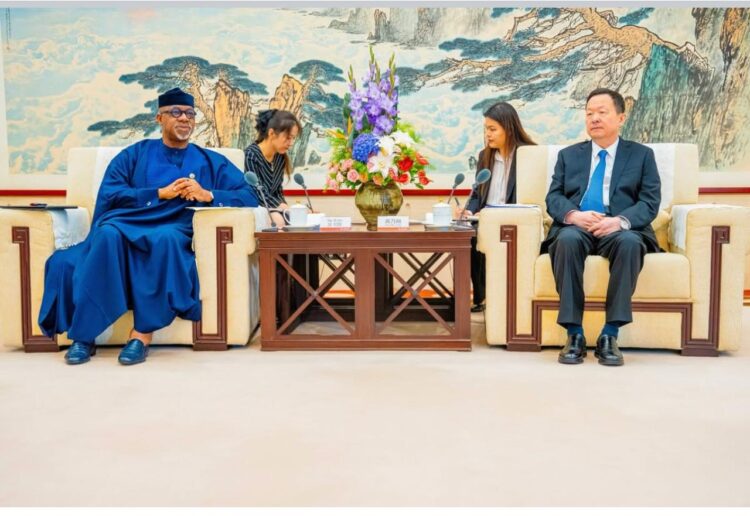● With bold diplomacy, vision, Abiodun repositions Ogun as Africa’s gateway to prosperity
● Partnerships in energy, ports, big tech, manufacturing shape a new frontier for Ogun’s economic renaissance
By Lanre Alfred
Not every leader walks the earth as though it were a marketplace of destiny, trading in gem, vision, and futures yet unborn. Prince Dapo Abiodun, Governor of Ogun State, has chosen that path.
His steps have become the rhythm of Ogun’s transformation even as his words summon investors from distant shores. Abiodun’s vision is the compass that situates Ogun, once muted in Nigeria’s industrial chorus, into the throbbing heart of Africa’s economic overture.
On Sunday, September 28, his words rang across oceans: “This morning, we held our second Shandong Province–Ogun State Economic and Trade Matchmaking Session, with a special focus on Rizhao. The session brought together a wide range of potential investors and business leaders from the Rizhao area within Shandong Province, creating an invaluable platform for dialogue and partnership.”
With this declaration Abiodun pronounced Ogun State’s transition through the borders of the provincial, into the grand arena of global reckoning.
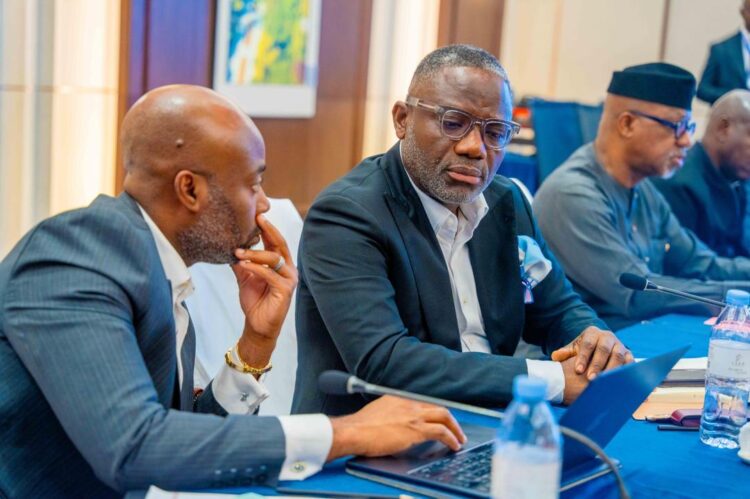
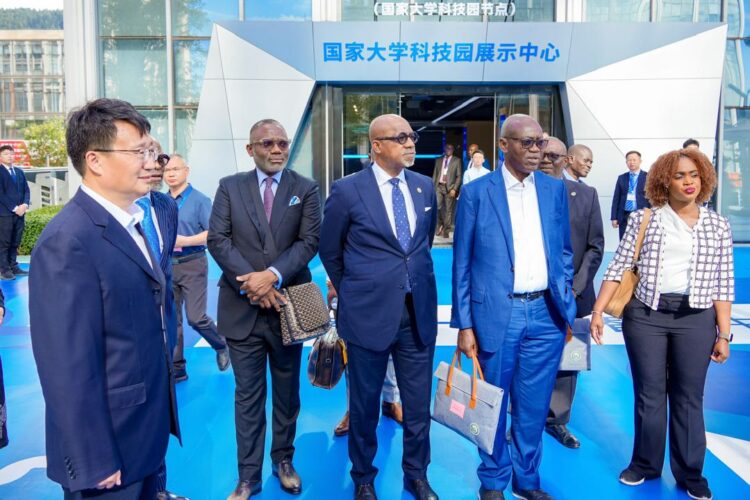
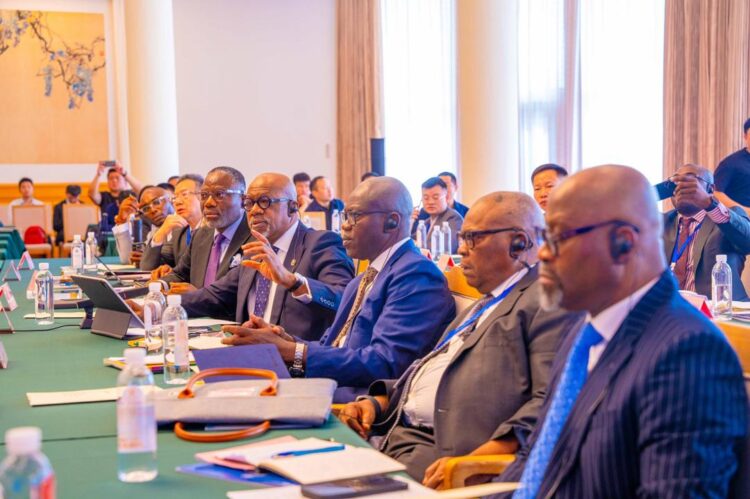
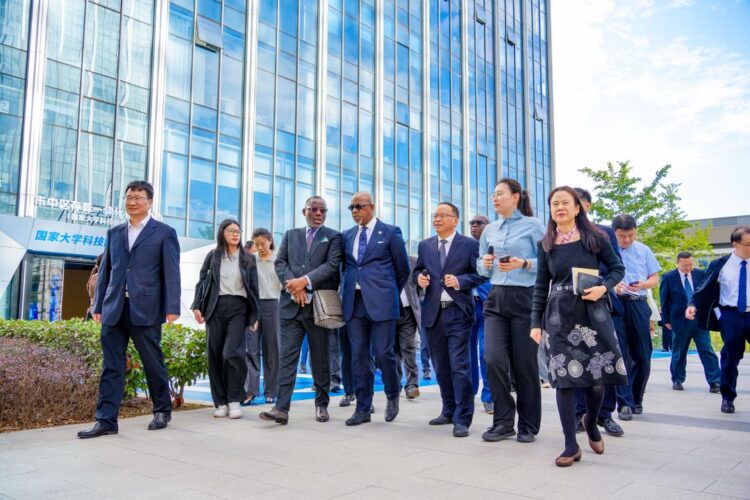
On that bright Sunday morning, Abiodun towered before a gathering of business leaders in Rizhao, Shandong Province, China. It was a forum carefully designed to connect Ogun’s industrial ambition with China’s manufacturing prowess. The air was charged with possibility as discussions ranged across manufacturing, energy, agriculture, technology, and infrastructure. But this was hardly just another bilateral meeting. It was a moment that crystallized Ogun’s global ascent; a declaration that the state is no longer content with being a supporting act in Nigeria’s economic story. It is stepping into the limelight as a stage of its own.
The Governor’s words carried both resolve and warmth. He spoke of Ogun’s comparative advantages, of the need for sustained collaboration, and of his confidence that the matchmaking would bear fruits that would endure beyond contracts and memoranda. His tone was one of assurance, the voice of a leader who knows the worth of his state and is determined to make others see it too.
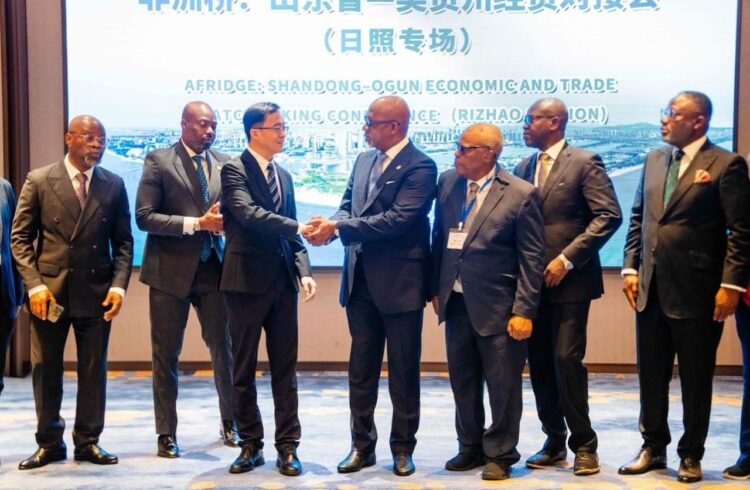
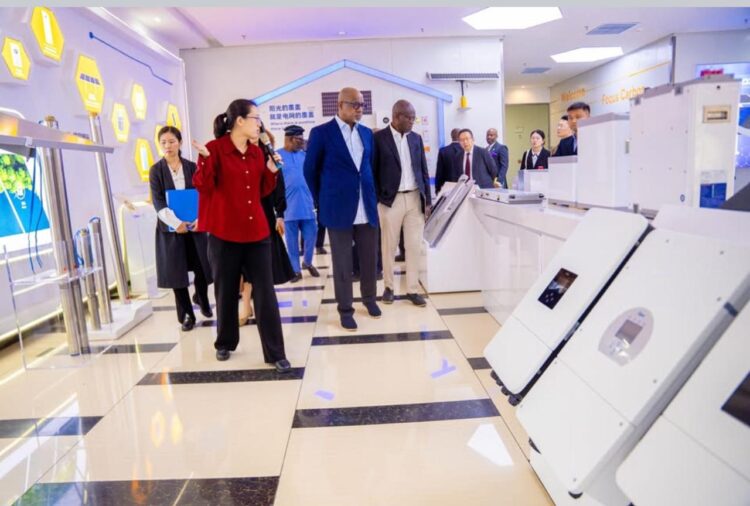
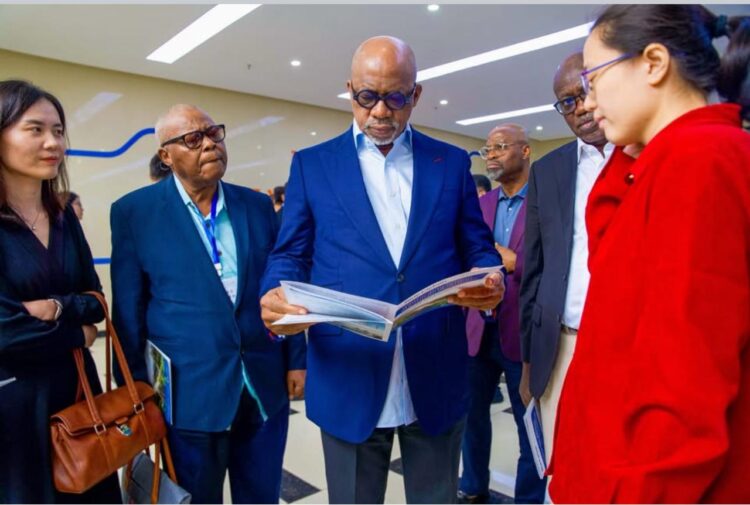
The courtship of Rizhao
From the conference hall, the Ogun delegation journeyed into Rizhao’s industrial arteries. Their first stop was BlueCarbon, one of China’s foremost solar technology firms, where solar panels and inverter systems gleamed in rows of immaculate precision. The factory tour became more than a corporate courtesy. It was revelatory. Executives of BlueCarbon, struck by the abundance of sunlight in Ogun and the state’s natural silica deposits, confessed that the conditions were ripe for a solar manufacturing plant.
For Abiodun, the moment was prophetic. The world is racing toward renewable energy, and Nigeria has often been left trailing. But Ogun, with its endless sunlight and the political will to harness it, could step forward as a pioneer. He reminded the hosts that his administration had already embraced sustainable energy solutions and that partnerships with companies like BlueCarbon were vital to building a future where Ogun’s households and industries are powered by clean, reliable, and locally manufactured solar technology. This was certainly no ordinary investment pitch; it was a vision of Ogun as the leader of Africa’s green energy revolution.
From BlueCarbon, the Governor’s entourage proceeded to Rizhao’s automated seaport, a marvel of efficiency and strategic design. Cranes moved with mechanical grace, containers glided into place, and ships anchored with a rhythm that spoke of planning honed over decades. Abiodun saw through the tour the making of a template.
He has long envisioned the Olokola Deep Sea Port, a project with the potential to redefine Ogun’s economic landscape and position the state as Nigeria’s maritime gateway. At Rizhao, he saw the dream in full bloom. With collaboration from the Shandong Port Group, Abiodun declared, Ogun could replicate Rizhao’s model and deliver a port that would serve not just the state but Nigeria and West Africa. It would become the entry point for trade, the hub for exports, the heartbeat of an industrial corridor stretching from the Atlantic to the hinterlands.
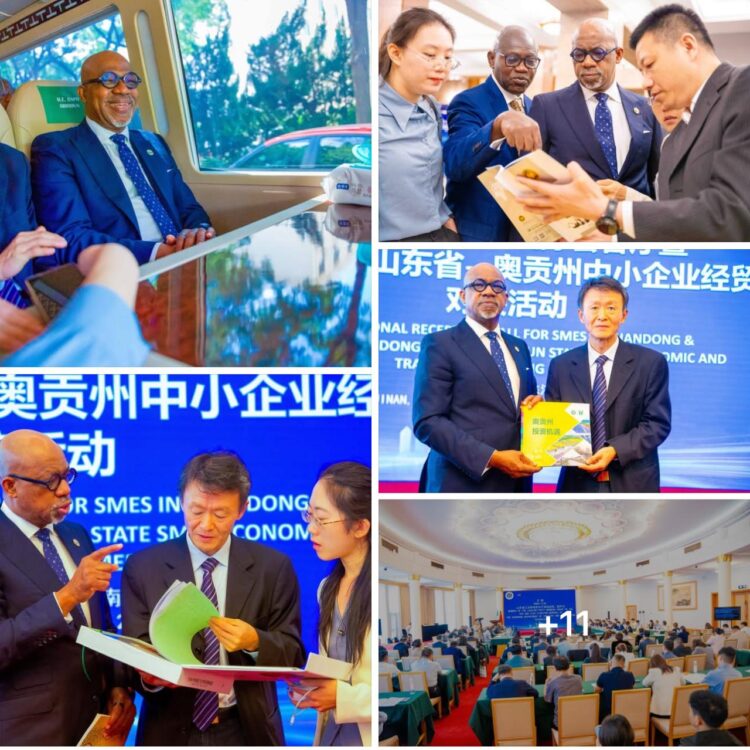
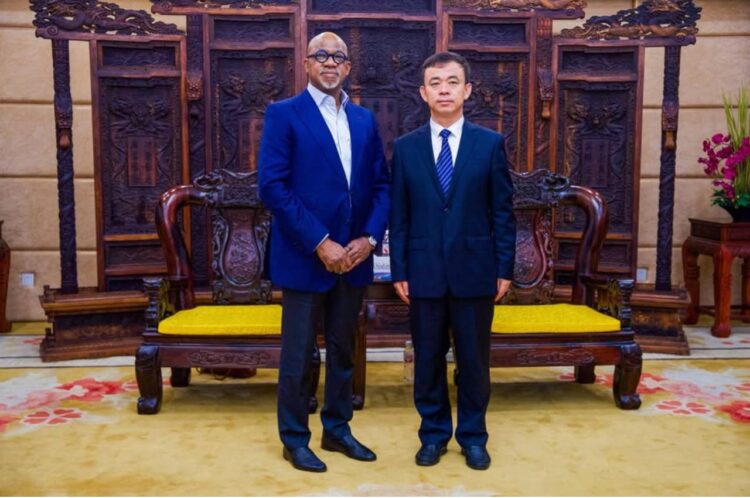
Building bridges with Shandong
The visit to Rizhao culminated in a meeting with Mayor Wang Xinsheng. The agenda was ambitious yet grounded: development of the Olokola Port, mineral exploration, and people-to-people exchange. Abiodun enthused about infrastructure and commerce as well as culture, and of the need for partnerships rooted in shared humanity, beyond profit margins. Sustainable alliances, he reminded his hosts, thrive when cultural understanding deepens, when the handshake of commerce is strengthened by the embrace of friendship.
Days later, the Governor met with Zhou Naixiang, the Governor of Shandong Province, under the umbrella of the broader Nigeria–China Strategic Partnership. Their dialogue reaffirmed Ogun’s commitment to agriculture, technology, manufacturing, and human capital development. Shandong, one of China’s industrial powerhouses, found in Ogun a partner ready for patronage and co-creation.
There is no gainsaying Abiodun’s diplomacy was clear-eyed. He positioned Ogun as the gateway to Nigeria’s industrial future, a state whose infrastructure and policies are aligned with global standards. For Shandong’s investors, it was an irresistible proposition: a secure, strategically located state offering access to Nigeria’s 200 million-strong market and, beyond it, to the entire West African subregion.
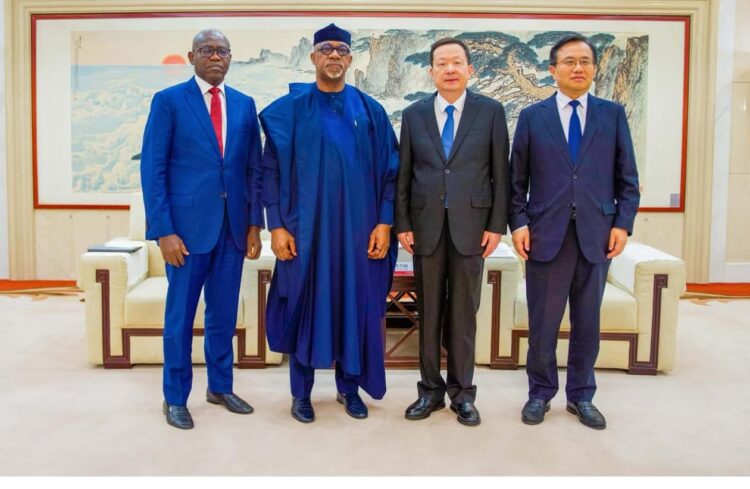
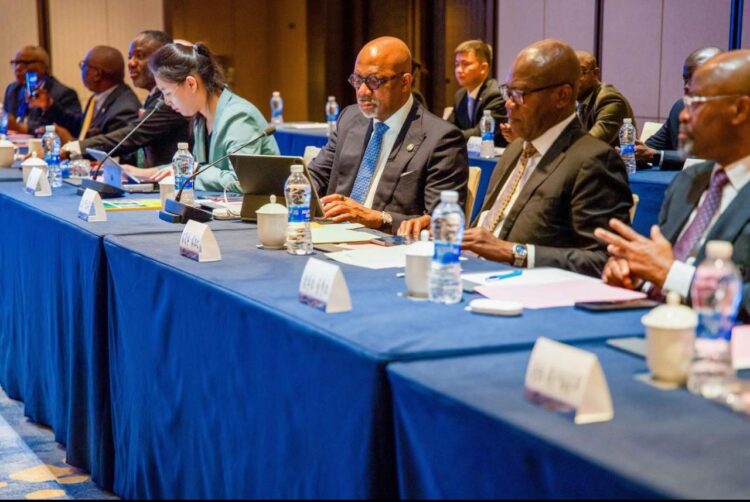
The Lee Group’s faith in Ogun
If the Shandong engagements revealed promise, the meetings with global investors confirmed confidence. In discussions with the Managing Director of Lee Group, the Governor was informed of new investments in Ogun valued at about 50 million dollars. It was a validation of Ogun’s magnetism.
Lee Group, already a dominant force in Nigeria’s detergent market, chose Ogun for expansion. New factories are rising on Ogun soil, some designed for exports to the United States and Europe. In these factories, detergents and food products will be manufactured not just for local consumption but also for shelves in distant markets. For Abiodun, it was evidence that Ogun is both a workshop for Nigeria and a thriving factory for the global community.
The expansion would create jobs, stimulate local economies, and deepen the state’s reputation as the country’s industrial capital. Each new facility represented investment and faith in Abiodun’s governance, one fostered by his deliberate policies, infrastructure development, and commitment to ease of doing business.
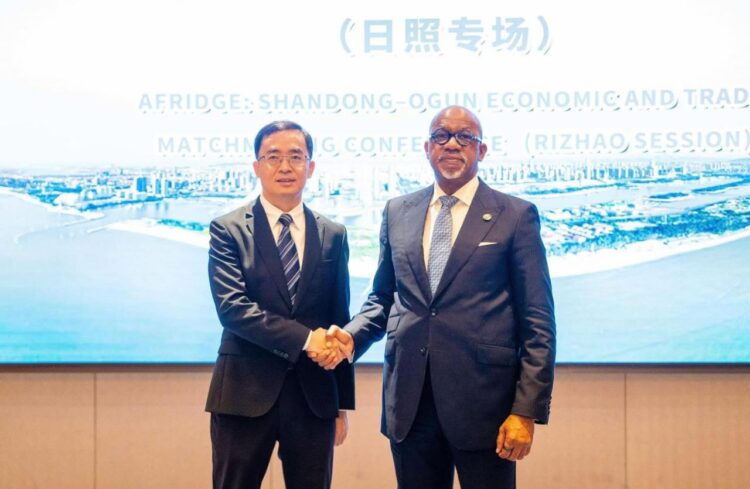
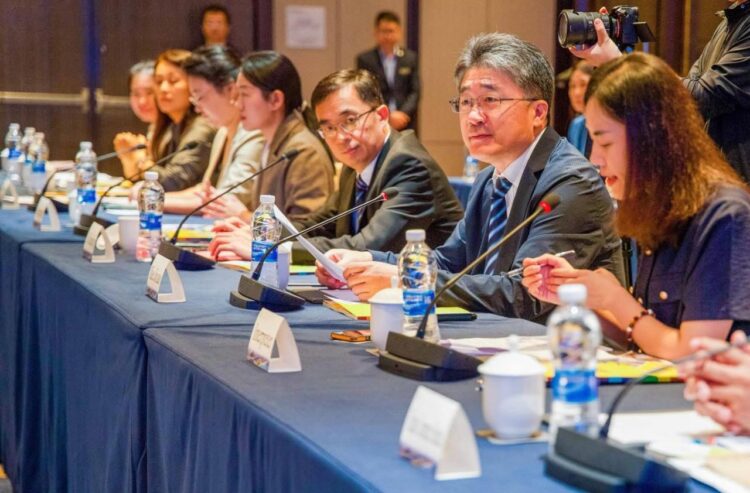
Ogun as a ceramic and digital giant
Perhaps the most symbolic of Ogun’s industrial partnerships came with the visit of Linshuang Zhang Esther, Chairman of Royal Ceramic. She praised Ogun’s business-friendly environment, applauded the government’s infrastructural strides, and confirmed that the state had become the lodestar for manufacturers across Nigeria.
Royal Ceramic’s success in Sagamu is attributable to Abiodun’s administration, which prioritised security, built critical infrastructure, and created policies that welcomed investors. Zhang’s commendation was further acknowledgment that under Abiodun, Ogun has redefined what it means to be hospitable to industry.
The Governor’s journey through Shandong was not only about ports and factories. It was also about the intangible future of digital economies. At Inspur, one of China’s leading IT firms, Abiodun saw a reflection of what Ogun could become. The story of Inspur’s rise resonated with his vision for the Ogun Tech Hub, a project designed to position the state as Africa’s next digital innovation center.
The conversations were about more than hardware and software. They were about knowledge exchange, skills transfer, and the empowerment of a new generation of Ogun’s youth. In the digital economy, Abiodun saw not just profits but possibilities: coders in Abeokuta building apps for the world, startups in Ijebu driving fintech solutions for Africa, and young innovators in Sagamu shaping the global future.
Indeed, the engagements in Shandong were only the latest chapter in a broader narrative. Across his tenure, Abiodun has crafted a mosaic of progress, each piece carefully chosen to fit into a larger picture of prosperity. From agriculture to technology, from infrastructure to culture, his administration has pursued a strategy of integration, ensuring that every sector supports the other.
The result is visible. Investors now speak of Ogun as a location and thriving business partner. They highlight its proximity to Lagos, its robust road network, and its deliberate policies. And this is because Abiodun’s method has been consistent: build confidence, attract investment, create jobs, and secure the future. It is a method that has won him admirers at home and abroad, and it is transforming Ogun into the industrial compass of Nigeria.
Critics may argue that Ogun’s rise is inevitable given its geography and resources. Yet geography alone does not attract factories, and resources alone do not build ports. It takes vision, diplomacy, and the courage to court the world. Abiodun has provided all three.
Ogun as Nigeria’s industrial capital
Today, Ogun towers as an industrial equal to Lagos; and this is because Governor Abiodun works tirelessly to model it as the workshop that powers Nigeria’s economy and the factory that feeds global markets. The Olokola Deep Sea Port, once a dream on paper, is inching toward reality. Solar plants beckon on the horizon. Digital hubs are rising, factories are multiplying even as investors keep thronging the state’s promising business landscape.
The story is definitely incomplete, but the trajectory is unmistakable. Ogun is ascending. And at the helm of this ascendance is Dapo Abiodun, the governor who has chosen diplomacy over bravado and results over rhetoric.
History will remember this era as Ogun’s golden dawn, the time when a state once overlooked became the lighthouse of Nigeria’s industrial future. And at the heart of that dawn will resonate the name of the man who dared to reimagine it: Prince Adedapo Abiodun, the peerless Executive Governor of Ogun State.


